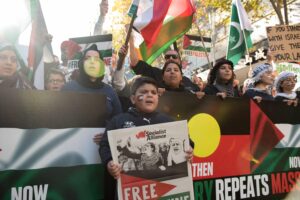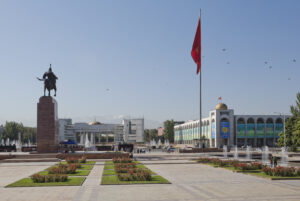Category: Civil Society
-
Increasingly networks are forming between Indigenous and Palestinian groups through a shared experience of colonisation. In recent years, there has been a shift at the grassroots level in Australia in support of the Palestinian cause. Solidarity networks between the Palestinian diaspora and Indigenous communities are growing wider and deeper. This has charted a new course […]Noura Mansour/May 22, 2024
-
In November, Egypt’s Red Sea resort town of Sharm el Sheikh will be hosting the 27th annual Climate Change Conference of the Parties. When it does, if the glossy promotional material is any indication, it will do its best to appear open, free and progressive. But with an estimated 60-thousand political prisoners still behind bars, […]Peter Greste/May 22, 2024
-
COVID-19 has exacerbated the challenges of female labour participation in Jordan. Female social involvement has significantly decreased by virtue of caring for their children and other familial responsibilities – especially since kindergartens were one of the first common areas to be closed during quarantine. Recent research has concluded that there is a noticeable low rate […]Akram Al Deek/May 22, 2024
-
In a small multi-sectarian country, such as Lebanon, highlighting religious and sectarian factors appear to be the most appealing and logical explanation to political and eocnomic woes. In reality, Lebanese sectarian diversity paved the way to a ruling class that took advantage of the national economic structure to pursue its own interests, leading to the […]Laura Sayah, Arab Center for Research and Policy Studies/May 22, 2024
-
Protesting parties were a diverse crowd, from the liberal Reforma, to the market-liberal BirBol, the liberal-socialist Ata-Meken, the conservative Mekenchil, the radical Chon Kazat, the religious Yiman Nuru, and others in between. The ideological leanings of Kyrgyz political parties tend to be mostly declarative and matters of convenience than of conviction, but still, their general outlooks, such as nationalism, conservatism or liberalism, have some substance to them.Emilbek Dzhuraev, Kyrgyzstan/May 22, 2024








